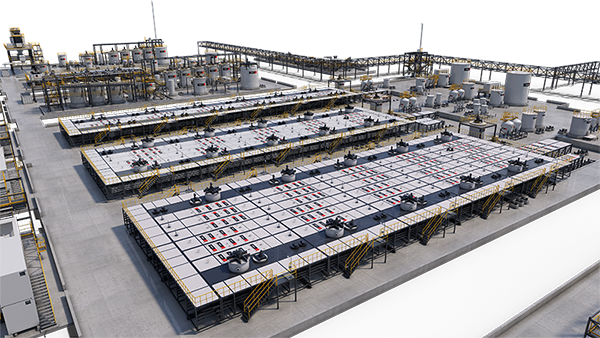METSO has confirmed plans to launch an ‘advanced’ sustainable battery black mass recycling process.
The move complements the manufacturer’s battery minerals technology offering, which covers concentration and hydrometallurgical processing as well as related services.
“The demand for battery minerals is increasing sharply with the ongoing transition to clean energy sources,” said Don Simola, director, battery chemicals technology at Metso. “For example, an electric car battery weighs approximately 200 kilos and is made of several metals. To cater for this demand, the world will need to produce more minerals and metals, but we also need to strive to close the loop and extend the life cycle of these valuable materials through efficient recycling.
“With Metso’s technology, the critical metals can be sustainably extracted from black mass and re-used in new battery production or in other applications. Recycling of black mass from batteries with Metso’s process can reduce up to 60% of embedded carbon compared to use of virgin materials.”
Metso revealed its hydrometallurgical black mass recycling process enables the treatment of mechanically separated and shredded batteries for recovering battery raw materials like nickel, cobalt, and lithium, as well as manganese and copper.
The process is based on Metso’s proprietary VSF X Solvent extraction technology and complemented with OKTOPreactors, Larox PF filters, Dual Media (DM) and LSF filters, and thickeners and scrubbers.
“With the launch of the battery black mass recycling process, our offering for the battery minerals value chain covers 90% of the end-to-end production process,” added Mikko Rantaharju, VP, hydrometallurgy at Metso. “We can provide sustainable technology and equipment for the entire lithium, nickel, and cobalt production chain from the mine to battery materials and black mass recycling with project scopes ranging from equipment packages to plant deliveries.
“We can also support our customers in the design of the process with our comprehensive testing and research capabilities.”









